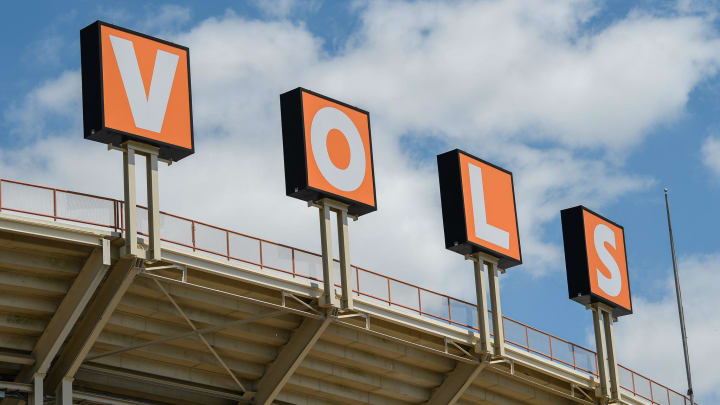4-Star Tennessee Commit Sues State Over NIL Regulations

Rolanda Brandon, the mother of Faizon Brandon, a highly touted quarterback recruit in the class of 2026, has initiated a lawsuit against the state of North Carolina. Faizon, committed to the Tennessee Volunteers, holds the No. 32 spot in the ESPN Junior 300 rankings and is recognized as his class's No. 4 pocket passer.
The lawsuit, filed in Wake County Superior Court, targets the North Carolina State Board of Education and the Department of Public Instruction, challenging a policy restricting public school athletes from monetizing their name, image, and likeness (NIL).
The legal action arises from a policy implemented in June that prohibits public school athletes in North Carolina from participating in NIL activities, which have become increasingly prevalent at the collegiate level.
"The State Board of Education was asked to create rules allowing public high school athletes to use their NIL — it was not empowered to ban it," said lawyer Mike Ingersoll to WRAL. "We look forward to correcting the State Board’s error and to help our client benefit from the incredible value and opportunities his hard work and commitment have created for his name, image, and likeness."
The lawsuit argues the financial ramifications of these restrictions for public school athletes. A notable national trading card company had shown interest in compensating Faizon for signing memorabilia before his graduation, presenting a potential pathway for financial stability for the Brandon family. This opportunity highlights the growing trend of athletes leveraging their fame and hard work, a right currently denied to public school athletes in North Carolina.
In stark contrast, private school athletes in the state enjoy the liberty to engage in NIL activities. For instance, David Sanders, another recruit for Tennessee and the No. 4 overall prospect in the 2025 ESPN 300, attends Providence Day School and has created a dedicated website for selling merchandise featuring his image. This disparity raises critical questions about equity and fairness in the treatment of athletes based on their school affiliation.
The outcome of this lawsuit could have profound implications for the future of NIL rights for public school athletes in North Carolina. If successful, it may pave the way for regulations that align public school athletes more closely with the opportunities available to their private school counterparts.
As the legal proceedings unfold, the implications of this lawsuit will be closely monitored by athletes, parents, and educational institutions alike. The case represents a pivotal moment in the evolving landscape of NIL rights, potentially reshaping the opportunities available to young athletes in North Carolina and beyond. The importance of monitoring this lawsuit cannot be overstated, as it could significantly impact the future of NIL rights.
